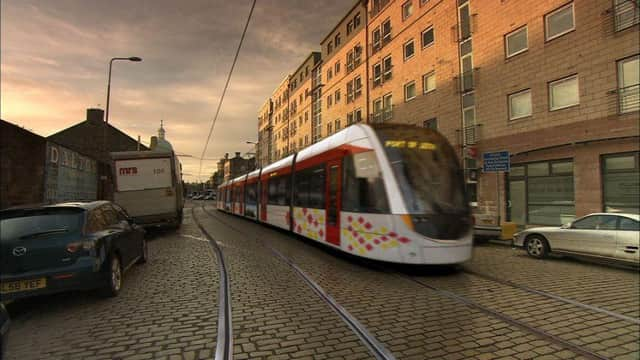Readers' letters: Tram costs rerun of Groundhog Day


The current claimed status of the so-called tram extension is yet again misreported. The business case says that construction will be completed by Q3 2022 – there is absolutely no prospect of this happening.
The historic costs from Phase 1, which are now nearly ten years old, should have told CEC that building the city section from York Place to Haymarket cost twice as much to build per mile than the section from Haymarket to the Airport. Had they used these historic costs this project was never viable.
Advertisement
Hide AdAdvertisement
Hide AdThe business case in Section 6 underlines a decision by CEC to take on the utilities risk. This effectively rendered the existing contract signed with the various contractors into cost-plus contracts.
This time these contracts guarantee the contractors get paid all of their costs.
With this cost-plus status, which will include the ongoing coronavirus effect on cost increases in materials of 50 per cent+ and the current labour difficulties, I confidently predict a larger proportional disaster than Phase 1 with out-turn costs well in excess of £500m.
Lord Hardie has a lot to answer for. Had he published his findings in a timely manner as promised on his appointment, then there was a chance of me and others not watching the same train crash again and again.
John RT Carson, South Queensferry
Vaccine cancellation was a big mistake
Advertisement
Hide AdAdvertisement
Hide AdOmicron is now here in Scotland. And 100 million doses of a Scottish-made vaccine that would have been effective in fighting this dangerous new variant, the Valneva vaccine, was cancelled by the UK government just two months ago.
Current vaccines, such as Astra Zeneca, target the protein spikes, which are the parts of the virus that mutate. Valneva, by contrast, introduces a whole neutralised Covid virus into the body, not just the spike proteins, giving a broader immune response.
A year ago, former vaccine head Kate Bingham had ordered 100 million doses of Valneva, recognising its potential to provide a better immune response against future variants. The UK government cancelled the order citing breach of contract, which Valneva denies
Bingham called the abrupt cancellation inexplicable. Professor Adam Finn of JCVI is among several scientists urging the UK to reconsider Valneva. He said we need more than one vaccine to deal with “an unpredictable, dangerous variant” like Omicron.
Advertisement
Hide AdAdvertisement
Hide AdOne can’t help but suspect that the UK government’s refusal to use Valneva was because of its Scottish/French origins. Scotland is used to being dissed by Westminster, as we saw in the decision not to develop the shovel-ready Aberdeenshire carbon capture project.
Only by ending an unequal Union that has served us so badly will we be able to make decisions that finally benefit Scotland.
Leah Gunn Barrett, Edinburgh.
Costly energy
A press release from Net Zero Watch revealed the cost of balancing the electricity grid rocketed to a daily record of £63 million on 24 November. That is because wind farms could only deliver 20 per cent of their theoretical capacity. The annual cost of the Balancing Mechanism has increased five-fold in just three years, reaching £1.8 billion in 2020. Fracking will provide energy security and lower bills.
Clark Cross, Linlithgow.
Comment Guidelines
National World encourages reader discussion on our stories. User feedback, insights and back-and-forth exchanges add a rich layer of context to reporting. Please review our Community Guidelines before commenting.